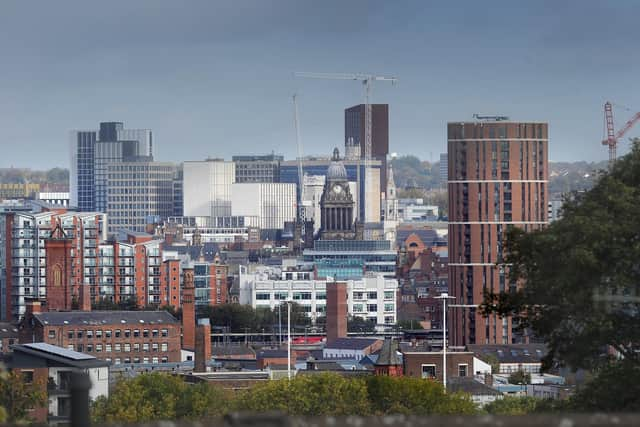Leeds, Wakefield, Castleford and Sheffield are strongest performing towns and cities in Yorkshire, according to survey
The Demos-PwC Good Growth for Cities Index ranks 50 of the UK’s largest town and cities, plus the London boroughs as a whole, based on the assessment of 12 key economic wellbeing factors, including jobs, health, income and skills, as well as work-life balance, house affordability, travel-to-work times, income equality, environment and business start-ups.
A spokesman said: "The latest Index, released today, shows that cities across the region are performing well against measures such as work-life balance, transport and income distribution. Out of the 51 cities, Leeds is the 10th strongest improver in the Good Growth Index this year, relative to a new baseline index for 2017-19.
Advertisement
Hide AdAdvertisement
Hide Ad"However, despite the high scoring in some key areas, the region performs poorly in several other variables, including health, new businesses per head, and safety, where only a few cities perform at or above the national average for each variable."


Overall, Leeds has performed the strongest out of the cities in the region, placing 30th out of 51, followed by Wakefield and Castleford at 31, and Sheffield at 32.
Andy Ward, Market Senior Partner for Leeds, said: “The pandemic obviously had a significant impact on the way we work, and what have been the important factors in our daily lives and where we live. It will be interesting to see if this changes again as we return to a more normal way of life.
“What is clear is that a lot of work needs to be done to narrow the social and economic disparity that exists in our region, and the impact of the environment will be fundamental in the progression of our cities.”
Advertisement
Hide AdAdvertisement
Hide AdJustin Martin, devolved and local government lead for PwC, said: “We’re emerging from the pandemic with a new set of priorities, largely focused around fairness, the environment and work-life balance. It’s likely that the way we have lived over the past two years has led to people reflecting on what they value the most. This appears to be having a significant impact on the fortunes of different places, with the cities that perform well not only having strong local authorities but also being characterised by strong environmental and safety credentials.
“While the vision set out in the Levelling Up White Paper centred primarily around geographic inequality, it did recognise that there are multiple societal disparities which affect people and could hinder the economic recovery. We know from our research that women and people from minority ethnic backgrounds are the most likely to have been negatively impacted as a result of the pandemic.
“Central government, local government and businesses all have a role to play in developing localised plans to address not only the regional inequalities but the societal gaps that also exist within their cities, towns and communities.”
Comment Guidelines
National World encourages reader discussion on our stories. User feedback, insights and back-and-forth exchanges add a rich layer of context to reporting. Please review our Community Guidelines before commenting.
